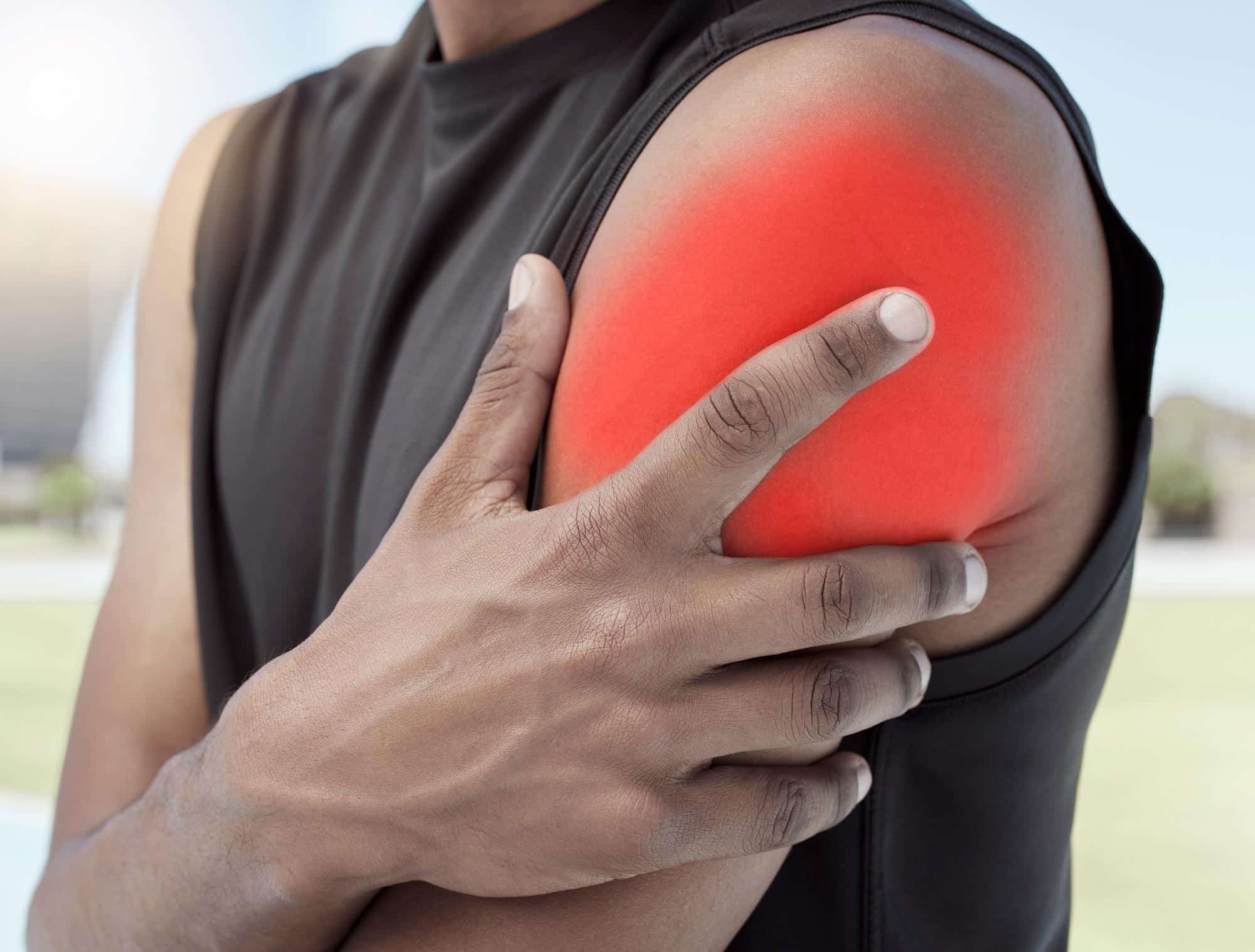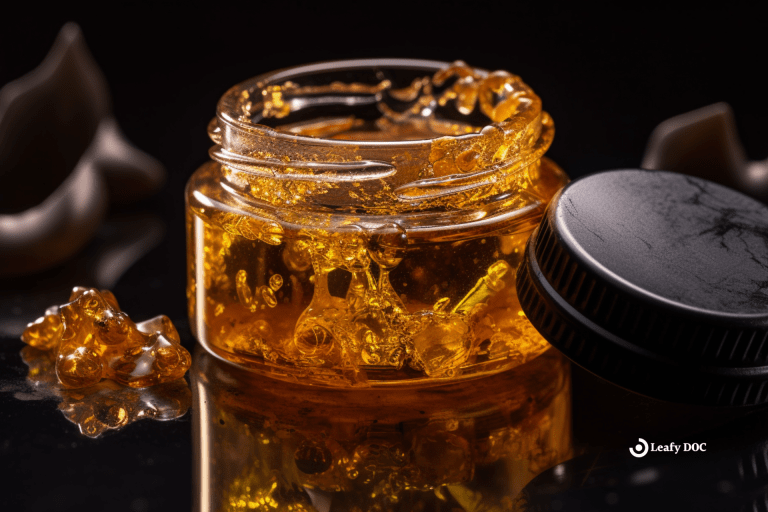Which Cannabinoids Will Help With Inflammation?
by Haley Mills · January 20, 2023
Are you looking for natural ways to reduce inflammation? Find out which cannabinoids can help with pain relief and how they can be used in your health plan.

Inflammation is the immune system’s response to a harmful irritant in the body. The aggravation might be a germ or a foreign object. Inflammation can begin before you notice the issue when the body tries to fight against the irritant. Can medical marijuana help combat inflammation in the body to relieve certain medical conditions? Read below to find out!
Chronic Inflammation 101
The most common causes of inflammation are:
- Germs like bacteria, viruses, or fungi
- Injuries like scrapes or damage through foreign objects
- Effects of chemicals or radiation
Medical conditions that include inflammation include:
- Cystitis: bladder inflammation
- Bronchitis: bronchi inflammation
- Otitis media: middle ear inflammation
- Dermatitis: skin inflammation
Other Conditions that cause chronic inflammation may include:
- Autoimmune diseases
- Arthritis
- Chronic Pain
- COPD
- Diabetes
- Heart Disease
- Multiple Sclerosis
- Rheumatoid Arthritis
- Inflammatory Bowel Disease
These five symptoms may be signs of inflammation:
- Redness
- Heat
- Swelling
- Severe Pain
- Cognitive or physical function loss
Inflammation reactions may include the following signs and symptoms:
- Cold or flu-like symptoms
- exhaustion
- fever
- Increased number of immune system cells in the blood
The human body can also experience inflammation in the organs and tissues, including liver inflammation, which can be dangerous if left untreated. Talking with your doctor about treatment options and anti-inflammatory drugs is important.
How do cannabinoids react in the body?
Cannabinoids are found in the cannabis plant and are also produced naturally by our bodies. Humans have an endocannabinoid system that organically produces cannabinoids. These compounds are essential to maintaining internal balance through many different body systems.
Cannabinoids interact with our ECS to help maintain homeostasis through a messenger system of molecules and receptors. Sleep, energy, cardiovascular health, reproduction, stress, chronic pain, motivation, appetite, digestion, and more are some bodily functions that cannabinoids impact.
Cannabinoids essentially mimic the body’s endocannabinoid system, such as anandamide. Anandamide is a fatty acid that activates the receptors. Cannabinoids bind themselves onto fat-soluble molecules to enter a cell’s lipid bilayer.
Cannabinoids attach themselves to CB1 and CB2 receptors. CB1 receptors are found in the areas of the brain that control pain perception, movement, memory, cognition, emotion, and autonomic functions. CB2 receptors are typically found in immune system cells. When the proper connection between cannabinoid and receptor is made, the body is stimulated to have a specific response.
Benefits of Medical Marijuana
The potential benefits of medical treatment with cannabis are vast. Specific cannabinoids can produce a therapeutic potential for patients with different health conditions. Peer-reviewed studies suggest that cannabinoids have varying health benefits. They have been used throughout history to manage various health concerns and ailments.
While research continues, more evidence suggests that cannabis and cannabinoids can benefit human health. Different cannabinoids are also being looked at as options that may benefit those who suffer from autoimmune diseases such as rheumatoid arthritis, lupus, Crohn’s disease, multiple sclerosis, and HIV/AIDS.
Risks of Medicinal Cannabis
There aren’t many known side effects for CBD, and most side effects from marijuana come from higher doses and long-term use. Weed can over-activate parts of the brain that contain the highest amount of cannabinoid receptors, which causes the intoxicating effects known as a “high.”
Marijuana also affects brain development if used at an early age. When people begin using it as teenagers, it can potentially impair cognitive functions and affect how the brain connects and communicates with other body areas.
Types of Cannabinoids & Their Effects
The two most commonly known cannabinoids in cannabis are tetrahydrocannabinol (THC) and cannabidiol (CBD); however, there are many more cannabinoids that can potentially treat inflammation symptoms. The word cannabinoid can refer to THC or any chemical that acts on cannabinoid receptors.
The human body produces endogenous cannabinoids. Cannabis plants produce exogenous cannabinoids (Phytocannabinoids). There are over fifty different Phytocannabinoids found in the Cannabis Sativa plant.
THCA
THCA is a non-psychoactive cannabinoid found in cannabis plants and is the natural form of THC. It is not yet activated and does not produce psychoactive effects when ingested until heated. THCA has many therapeutic benefits, including relieving pain, fighting cancer cells, and reducing muscle spasms. THCA is also a powerful antioxidant and anti-inflammatory agent.
CBD
CBD is used daily for various therapeutic benefits, from digestive aids to helping calm mental disorder symptoms. CBD’s benefits have been shown to have positive effects in regulating seizures. The FDA has approved CBD as a prescription-strength (Epidiolex), a medication used for certain forms of epilepsy.
Cannabis and hemp have been used historically for pain management for long-term pain sufferers and those with diseases such as cancer to manage the symptoms after chemotherapy. CBD is non-intoxicating and has been shown in some cases to counteract the impact THC, and other stimulants like alcohol may have on the body.
Delta 8 THC
Unlike CBD, delta-8 THC produces euphoric effects similar to but milder than delta-9 THC, the well-known psychoactive compound in cannabis. Delta-8-THC occurs naturally and is an isomer of delta-9 THC, and the difference between the two molecules is simply the location of a carbon double bond.
Delta-8 THC’s popularity began when an oversupply of CBD extracted from hemp grown in the United States caused the price of CBD to fall dramatically. Producers began looking for ways to convert CBD into delta-8 THC. The cannabis industry marketed the products to those seeking pain relief and stress management, those not looking for an intense high, and those living in illegal areas.
HHC
The following are potential medicinal benefits of HHC, though further research is needed to provide sufficient anecdotal evidence supporting HHC’s therapeutic qualities:
- Reduce anxiety
- Relieve chronic pain
- Mood booster
- Relaxing and Soothing Qualities
- Reduce inflammation
- Nausea and vomiting Alleviation
- Better quality of sleep
Cannabis Research on Inflammation
Medical marijuana has been proven to possess significant antioxidant and anti-inflammatory effects, which can help with chronic pain and acute inflammation management reasonably quickly. Cannabinoid receptors bind to the brain and peripheral nerve cells and help regulate how you see and feel the pain to reduce anti-inflammatory responses. Medical cannabis, therefore, as opposed to other drugs, appears to be an excellent alternative to treat and manage pain due to inflammation.
Recent studies from medicine and health sciences professionals suggest that certain cannabis products may effectively treat an overactive immune system. It can connect with the cannabinoid receptors of the body to combat the proinflammatory t-cell responses needed. It has been used to boost immune cells. It treats rare skin conditions, Crohn’s disease, neuropathic pain, particularly autoimmune disease, inflammatory bowel diseases, acute psychosocial stress, joint pain, and many other conditions.
“CBD can bind to receptors in the human body that are part of the cannabinoid system, called the endocannabinoid system, that can influence pain, itch, and mechanisms of inflammation,” Dr. Friedman says. “We know that when CBD binds to the cannabinoid receptor type 2 and other receptors, it can be involved in not just anti-inflammatory activity, but it can become the chemical messenger to facilitate an array of activities that decrease inflammation. It can stimulate the secretion and recruitment of skin cells important for removing debris and proper skin maturation and healing.”
The Canna Research Group, led by Joanna and Robert Zieger, surveyed 1,200 athletes across various sports. Their findings showed that many athletes use cannabis for relief and performance. This survey assisted in studying the positive and negative effects of marijuana use from a neutral standpoint. Their findings showed that cannabis use could benefit inflammation, pain, and insomnia. Only a few participants experienced adverse side effects, such as loss of concentration and heightened anxiety.
An article by Elizabeth Hanes, RN, for Healthgrades, reads:
“Researchers currently think taking in cannabinoids from the cannabis plant may help activate the body’s endocannabinoid system and facilitate its’ effects in dialing down the body’s inflammatory response, which could reduce the symptoms of diseases like psoriasis. Both THC and CBD can influence symptoms of inflammatory diseases. Which substance you use depends on which symptoms you want to alleviate.”
Best cannabis products for Inflammation
- Aspen Green Full-Spectrum Hemp Extract
- FAB CBD Full-Spectrum CBD Oil
- Brown Girl Jane Balance Wellness Drops
- Wonderfeel Daytime CBD
- Zion Medicinal Spagyric Hemp Oil, 250 mg
Is Indica or Sativa better for fighting Inflammation?
Chronic inflammation impacts 43 million people in the U.S. every year. It’s a condition that has left many people with ongoing chronic pain and discomfort. Thankfully, many scientists are hopeful that the therapeutic properties of weed may offer relief for those still looking for relief.
While looking at the results of a 95-person online survey about the medicinal use of marijuana, researchers found that the Indica cannabis strains perform best for chronic pain management, arthritis symptoms, and a relaxing effect to help with sleep. However, the Sativa cannabis strains worked better as energy and mood boosters. Some of the top cannabis strains for treating inflammation are ACDC, Harlequin, White Widow, Cannatonic, Sour Diesel, and Girl Scout Cookies.
Top Ways to Consume Cannabis for Inflammation Relief
The cannabis industry has many popular cannabinoid products, from medical-grade flowers and tinctures to recreational vape pens and dabbing. Cannabinoids come in various forms and can be smoked, taken in capsule form, taken sublingually, orally, and used topically on the skin.
Baked goods, candies, cannabinoid-infused oils, beverages, savory snacks, candies, and gummies are many choices for cannabinoids. Although more research is needed, these minor chemical compounds have more benefits than most people know. However, it is essential always to purchase products from a reputable dispensary to ensure that your cannabis products are safe and effective.
The Takeaway: Does Weed Help with Inflammation?
There is scientific evidence that cannabinoids like HHC, THC, CBG, and CBD can help reduce inflammation. For patients with chronic conditions, these anti-inflammatory properties could help relieve severe symptoms and give them their lives back. Although more research is needed on cannabis use for inflammation, individual reports claim their personal use of medical marijuana and CBD has effectively reduced some chronic inflammatory symptoms.
Last Updated: August 8, 2024
Get Approved for Your Medical Marijuana Card in Minutes!

Get Your Medical Card
Connect with a licensed physician online in minutes

Like This Article?
Share with your friends
Table of Contents
Keep Reading
-
Live Rosin VS Live Resin
Resin vs Rosin: Unveiling the Ultimate Showdown! Choose Your Winner and Unlock the Secrets. Click Now to Discover Live Rosin and Live Resin – Which Will Reign Supreme?
-
Uses For Cannabis-Infused Lip Balm
Unlock the power of cannabis-infused lip balm for irresistibly smooth lips. Say goodbye to dryness and hello to a natural beauty revolution. Click here to learn more about the benefits of cannabis lip balm!
-
Understanding The Role Of Cannabis In Treating Sleep Apnea
Unlock the Potential of Cannabis for Sleep Apnea Relief – Find out how cannabis can transform your sleep and improve your quality of life. Click here to learn more!



